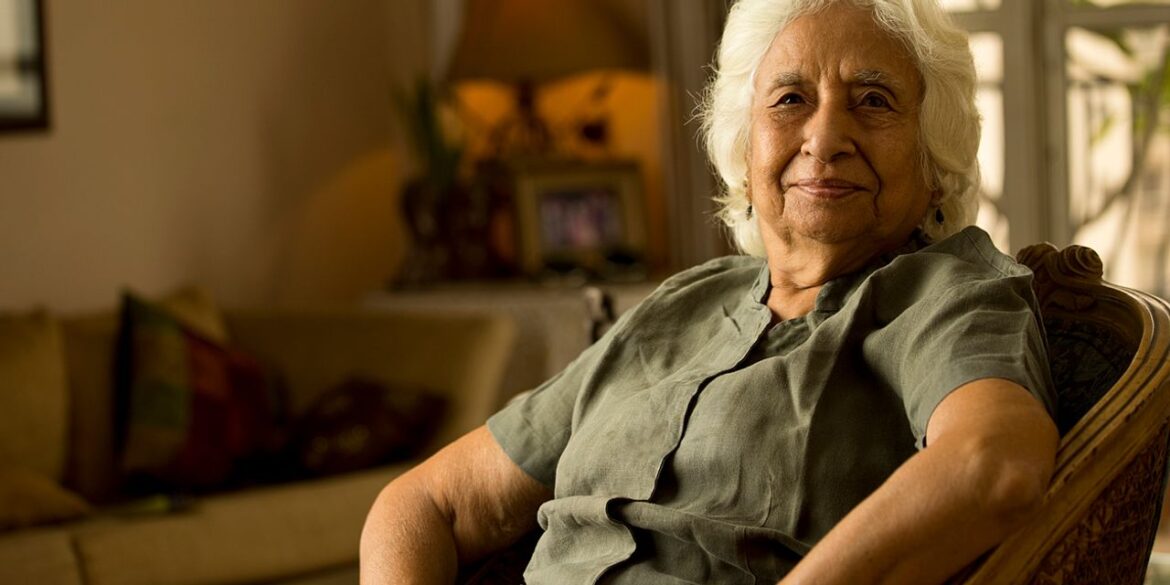
“He and his daughter have not seen each other or spoken to each other in at least three years.”
Source link
Elderly
How a scam artist stole $50 million from elderly people, $30 at a time

The letters went out like clockwork every month — 750,000 of them.
They bore tidings of great wealth, declaring the recipient had won a large cash prize. All they had to do was send as little as a $30 processing fee to claim it.
And every month, some 2% of the recipients responded — or 15,000 people — each enclosing a $30 to $50 check or money order, according to court documents. In all, that amounted to at least $450,000 a month.
But it was all a scam, federal prosecutors said. There were no prizes. The money simply went into the pockets of a 41-year-old man named Ryan Young from Upper Saddle River, N.J. From 2011 through 2022, prosecutors say, Young and co-conspirators raked in $50 million through the scam.
On Friday, Young was sentenced to five years in prison for his role in operating two separate prize-letter schemes. Perhaps even worse, Young had been accused of running the second scheme after pleading guilty and awaiting sentencing for the first, prosecutors said.
“The defendant’s conduct is especially egregious,” said Eric Shen of the U.S. Postal Inspection Service. “After pleading guilty and acknowledging his responsibility, Mr. Young decided to revert back to what he knew best, which was ripping off Americans.”
Messages left with Young’s attorney weren’t immediately returned.
‘I need this money to get well’
Federal prosecutors in the Eastern District of New York say Young specifically targeted older victims by purchasing lists from other scam operators of people who had fallen prey to similar frauds in the past.
According to court filings, anyone who ever responded to one of the phony prize letters would then receive 15 more over the next few months. Each would be written to appear different, but all would solicit similar fees in order to claim the prize. For people who had responded once, the reply rate to follow-up solicitations was as high as 5%, according to details contained in the filings.
“This is the 4th letter from you. I ask you to find the money order I sent in March. I paid you 30 dollars. Where is my money?” read a letter from one victim that investigators found in Young’s home.
The court filings included many such letters, almost all from victims who described themselves as elderly and living on very limited fixed incomes. Many of them said the promised money was like a gift from God.
“I am a 93-year-old living on a small social security income. My goal in life is to pay my debts so I can continue my charities before I die. So please be true to this. May the good lord bless you,” read one letter. “I am in a big financial crisis. I just borrowed the $50 from a neighbor.”
Others described being in poor health and having few relatives or friends who could help them.
“I hope this is not a scam. I am 80-years-old, sick and in bed and I need this money to get well,” read another letter.
Repeat offender
Prosecutors say Young had spent almost all of his adult life honing his prize-money scam.
Part of his ability to ramp up the scheme to such a widespread level came from his partnership with third-party outfits overseas, known as caging services, that would help send the solicitations and collect and process the payments, prosecutors said. The firms specialized in sweepstakes and clairvoyant mailings, court documents said.
One of the firms, called Trends, was based in the Netherlands and shut down by Dutch authorities in 2016 after being hit with charges brought by federal prosecutors in Brooklyn. Prosecutors say Young and his co-conspirators also used similar services in Canada and Austria.
To further conceal his connection with the scheme, Young registered corporate entities overseas using intermediaries. Those firms were used to create bank accounts for Young to ultimately receive the payments.
Prosecutors say Young hired another man, Thomas Ressler, of Whitehall, Mont., to write the phony solicitation letters, and paid him over $1 million over the course of several years. Ressler pleaded guilty in 2018 to his role in the scheme and was sentenced to 36 months in prison.
Young was initially arrested in 2016 for running the larger of the two scams he was eventually charged with, in which he and a co-conspirator, Ercan Barka, were accused of stealing $48 million from hundreds of thousands of elderly victims. Barka provided testimony against Young and his case remains pending, court records show.
In 2018, Young pleaded guilty to one count of conspiracy to commit mail fraud. But while awaiting sentencing, prosecutors say, he launched another prize-money scheme through which he would eventually steal an additional $1.6 million. He was charged with the second fraud in 2022 and pleaded guilty the following year.
In court filings, Young’s lawyer said his client had suffered a lapse of judgment in 2018 following the death of his mother and the return of his estranged father to his life, which led him to make the poor choice of launching another fraud scheme.
Young’s attorney had argued in court papers that his client should be given some credit for cooperating with authorities in helping take down the overseas caging services that had played a role in his fraud and others.
Prosecutors argued that Young had spent much of his life as a predator targeting elderly, vulnerable people from whom he “took more than $50 million dollars.” They noted that he continued running the scam despite receiving “handwritten accounts of the harm his actions were having on his victims on a daily basis.”
I want my elderly father to quitclaim his home so I can refinance. Is that wise?
I am a 56-year-old man living in my family home with my father, 93, who has Type 2 diabetes and a pacemaker and is legally blind. My mom passed away five years ago. He is in good health otherwise, and well taken care of. Because of his blindness, he needs round-the-clock care. My girlfriend of 10 years lives with me, and she helps. We are his caregivers.
I also have a sister, whom I just set up with an apartment for which people wait years to even get on the waitlist. I was able to get her in based on my connections with the management. She is a spendthrift and has not worked for years, and while living with my father prior to my taking over, she spent thousands of dollars of his money.
Last April, my sister racked up $20,000 on our father’s credit cards, and tried to take upwards of $13,000 from his bank account. She wrote two checks — one for $8,000 and one for $5,000. Luckily, the bank did not cash the check for $8,000. What we want is for him to quitclaim his home to me to help my sister and me. My father will live here until he passes.
Upon his quitclaiming the house to me, I would own it outright and get an immediate home-equity loan. I plan to purchase a lump-sum annuity for $200,000 with a 20-year time period, which would give my sister approximately $1,400 a month in addition to her Social Security Disability Insurance. We would then split the balance of my father’s estate — $100,000 each.
Here are my questions regarding my father’s house: What is the best way to go about this? I own my own business, and I can’t get a home-equity loan until I take over my father’s house. I’m looking for some expert advice on how to get this done. Thank you in advance for any help and/or advice you can provide.
The Son
Related: I want my son to inherit my $1.2 million house. Should I leave it to my second husband in my will? He promised to pass it on.

“Choosing to do your own version of a reverse mortgage by leveraging the equity in your father’s house to provide income for you and your sister today seems opportunistic and foolhardy at best.”
MarketWatch illustration
Dear Son,
This is a terrible idea. It’s a terrible idea for you, for your sister and for your father.
Say your father quitclaims this home to you now, while he is still alive, and you sell the home. You will have to pay long-term capital-gains tax on the property, if or when you sell it, on the price he paid for the home rather than on the value of the home when you inherit it. This is called a “step-up in basis,” and you will lose that tax advantage by quitclaiming now.
If your father quitclaimed his house to you and it was worth $1 million upon his death, an appreciation of 100% on the purchase price, you would be required to pay capital-gains tax on the original purchase price ($500,000) to the Internal Revenue Service, if you sold the property. With a step-up in basis, you’d pay capital-gains tax only on appreciation above $1 million.
Furthermore, you are proposing taking out a home-equity loan on a property in order to purchase a $200,000 lump-sum annuity over 20 years. With interest rates hovering at over 6%, you are facing at least $1,200 a month in repayments. You’re putting yourself into debt to buy this annuity, effectively robbing Peter to pay Paul.
Research has shown that people don’t always act prudently when they take out a lump-sum annuity. Some analysts refer to this as the “lottery effect.” According to this survey by MetLife, one in five retirement-plan participants who selected a lump sum from either a defined-benefit or defined-contribution plan say they depleted it, and ran through their money in 5.5 years on average.
The price of your father’s care
Another problem: Your sister has proven herself to be untrustworthy, by your telling — someone who will fritter away money given to her and ask for more. Or, assuming what you say is true, she might just take what she wants, regardless of the consequences. Why are you going through these financial gymnastics? Is it for her? Or for yourself?
The other issue casting a shadow over your desire to plunder your father’s house for money even while he still lives there: your business. Carefully examine your motivations for making such an extraordinary move while your father is still alive. What if you fall on hard times and the bank forecloses on the house? Where will your father live then?
Children usually inherit their parents’ property after their last parent has passed away; choosing to do your own version of a reverse mortgage by leveraging the equity in your father’s house to provide income for you and your sister today seems opportunistic and foolhardy at best. Let your father live the remaining years of his life in peace.
Your father has been fortunate to have you and your girlfriend taking care of him these past few years, given his multiple health issues, but what is the price of this care? What if you can no longer take care of him and he needs to be admitted to a long-term-care facility, or he requires professional medical assistance?
His house is his one source of income and stability. Please don’t take that away from him.
You can email The Moneyist with any financial and ethical questions at qfottrell@marketwatch.com, and follow Quentin Fottrell on X, the platform formerly known as Twitter.
Check out the Moneyist private Facebook group, where we look for answers to life’s thorniest money issues. Post your questions, tell me what you want to know more about, or weigh in on the latest Moneyist columns.
The Moneyist regrets he cannot reply to questions individually.
Previous columns by Quentin Fottrell:
My parents want to pay off my $200,000 mortgage, and move into my rental. They say I’ll owe my sister $100,000. Is this fair?
‘I hate the 9-to-5 grind’: I want more time with my newborn son. Should I give up my job and dip into my six-figure trust fund?
My brother put our names on our elderly mom’s home. Is this a terrible mistake?
Dear Quentin,
My mother is 88. My brother put both our names on her home deed. The house is paid for and we all live in Tennessee. I think he thought it would protect her assets, but won’t this cause a tax problem for us when she dies?
The home is paid for in full, and she purchased it around 1995. Our mother is a very healthy 88-year-old, so she has no foreseeable issues going into a nursing home. We don’t want to jeopardize her Medicare or Medicaid. Have we made a terrible mistake?
Concerned Son

“There are other ways adult children can set up the transfer of a parent’s home.”
MarketWatch illustration
Dear Son,
If you and your brother are on the deed of your mother’s house when she dies, you will likely be responsible for capital gains tax on the house after your mother dies and when you go to sell. It would mean you will not avail of a “step-up in-basis” on capital gains taxes.
With a step-up in-basis, the profit on any sale would be calculated as the sale price minus the recent appraised/market price of the home — not the purchase price. In other words, the tax is based on the property’s fair market value when their benefactor died.
Here’s an example: If the house was bought for $500,000 and worth $1 million, you would pay capital gains on the difference between $1 million and the sale price — and not on the original price paid for the property by your parents.
Obviously, consult a trusts and estates attorney before making any further decisions. A qualified attorney can help you make sense of how complicated calculating a basis can get, such as if there were improvements made prior to the addition of your names on the deed, or if adding your names was considered a gift. You have one thing in your favor: in these circumstances, elderly parents are sometimes cajoled to sign over their home, and risk being evicted when they do so. That is not the situation here.
There are other ways adult children can set up the transfer of a parent’s home. A transfer-on-death deed would also be cheaper than setting up a trust, which can be expensive and complicated, and would supersede any previous lost-and-found will made by your parents.
Medicaid eligibility
Medicare is a federal program that provides health coverage if you are 65 and over. Medicaid, on the other hand, provides health coverage for those who have a very low income. Medicare does not cover long-term care costs such as a nursing home.
Some people think that they should sell their elderly parent’s home, but this should not be done without legal advice. Selling a home can disqualify an individual from Medicaid, due to the parent in question having excess assets.
What’s more, most states have a five-year look-back period on maneuvers people make with their finances for such purposes. So it’s difficult to “game the system” to ensure a parent does not have too many assets.
As such, there would need to be a five-year grace period in most states between setting up such a trust and filing for Medicaid coverage, if you were to put your mother’s assets in a trust. But it would all depend on the rules and limits in your particular state.
In 49 U.S. states and Washington, D.C., the look-back period is 60 months; in California, it’s 30 months. Even if a Medicaid beneficiary has a windfall or an inheritance, and gives the money away, they are in violation of the look-back rule, the American Council on Aging says.
Think twice before making such big decisions, and always seek out legal counsel.
Readers write to me with all sorts of dilemmas.
By emailing your questions, you agree to have them published anonymously on MarketWatch. By submitting your story to Dow Jones & Co., the publisher of MarketWatch, you understand and agree that we may use your story, or versions of it, in all media and platforms, including via third parties.
The Moneyist regrets he cannot reply to questions individually.
More from Quentin Fottrell:
‘I just don’t have a clue where to start’: Where should I invest my $50,000 life savings right now?
‘She says it’s not fair’: My wife will retire at 62, and I’ll be ready at 59. We have $5 million. Am I being lazy?
‘Is my husband the cheapest man in America?’ We only eat out on our anniversary, and I don’t even have an engagement ring.
Can a Nursing Home ‘Take Our IRA?’ My Wife and I Are Elderly. We Have a $100K IRA and a Trust to Protect Our Assets.
My wife and I are elderly. I have an individual retirement account (IRA) worth about $100,000, and we have a trust set up through our children to protect our assets. If one or both of us have to go into a nursing home, can they take our IRA? What do we need to do to protect it?
-Dawn
Long-term care (LTC), which may include nursing home stays, is expensive and can quickly suck up savings you may have intended for something else.
How do you prevent that from happening? The specific answer depends on variables you didn’t reveal. But in my experience, when people talk about “protecting” assets from LTC costs, they often have Medicaid in mind. So what does that look like? (And if you need more help planning for long-term care costs, consider working with a financial advisor).
Qualifying for Long-Term Care Through Medicaid
Medicaid is often viewed as a “safer” option for long-term care for the simple reason that it is less expensive and therefore less likely to drain your assets. But Medicaid eligibility is governed by strict income and asset limits. While those limits vary by state, having a $100,000 IRA will likely disqualify you from Medicaid coverage.
So now you are faced with a paradox: The assets you want to save by means of cheap healthcare are an obstacle to getting cheap care in the first place.
It is at this point that an estate attorney or well-meaning friend might suggest you rearrange your assets in such a way as to exempt them from the eligibility limits. The idea is to make yourself less wealthy on paper to qualify for Medicaid without actually giving away your assets.
If this sounds tricky, that’s because it often is. For one thing, many states use a five-year lookback period when determining Medicaid eligibility. This means that if you do any fancy asset-shuffling in the five years before applying, your efforts will have been in vain. (And if you need help determining whether you’re eligible for Medicaid, consider matching with a financial advisor.)
3 Ways to Protect Your Assets from Medicaid
If you’re ready to be matched with local advisors that can help you achieve your financial goals, get started now.
If you’re willing to plan ahead and do your homework, there are a few options for relocating your assets so that you can potentially qualify for Medicaid.
-
Annuities: Any money you put into a “Medicaid-compliant” annuity will not count against your asset limit and will be exempt from the lookback period, as well. The catch – and it’s a big one – is that the money is totally locked up, except for whatever periodic payment you receive from the annuity. And that payment will count against the income eligibility limit.
-
Home equity: In most cases, any equity you have in your primary residence will not count against the Medicaid asset limit. So you could protect your assets by putting them toward your mortgage or even upgrading your home. But the lookback period also applies here, and in some states, the government may claim part of your home equity to recoup care costs after your death.
-
Trusts: You mentioned having a trust already set up, but there is a type of trust designed specifically for this situation. Putting your money into a Medicaid asset protection trust (MAPT) effectively hands it over to someone else, so it is technically no longer yours and does not count against your Medicaid eligibility. Just remember that the handoff must be completed five years before you go on Medicaid.
As you may notice, the common problem with these methods is that they drastically restrict what you can do with your assets. And by taking away your financial independence, to some extent they leave you poor in reality – not just on paper. (And if you need help executing one of these strategies, consider matching with a financial advisor.)
That may be preferable to the alternatives, but it depends on another variable: Why do you want to protect your assets from long-term care expenses, including nursing home costs, in the first place?
Is Cheap Care Worth it?
The options discussed above often make the most sense as estate planning measures. If you do not expect to use your assets yourself and are instead concerned about preserving them for your heirs, perhaps it does not matter if they get locked up in a trust, an annuity or your home equity.
But there is still an elephant in the room. Remember that these asset-protection techniques will ultimately leave you with cheap healthcare and long-term care. And that may impact your access to care and its overall quality.
Ask yourself this: What are you trying to “protect” your money for? Is it worth all the hoop-jumping and the risk of mediocre care in your twilight years? It may be if you want to leave a sizable inheritance behind or save assets for your spouse. (And if you need more help with estate planning, consider working with a financial advisor.)
Next Steps
A middle-ground solution be the best course of action. Something like LTC insurance or an “aging-in-place” strategy may not completely protect your assets from long-term care costs. But such an option could reduce those costs while still providing the care that preserves your quality of life.
Remember, the point of saving money is ultimately for your well-being and that of your loved ones – not just to save it for its own sake.
Tips for Finding a Financial Advisor
-
Finding a financial advisor doesn’t have to be hard. SmartAsset’s free tool matches you with up to three vetted financial advisors who serve your area, and you can interview your advisor matches at no cost to decide which one is right for you. If you’re ready to find an advisor who can help you achieve your financial goals, get started now.
-
Consider a few advisors before settling on one. It’s important to make sure you find someone you trust to manage your money. As you consider your options, these are the questions you should ask an advisor to ensure you make the right choice.
Graham Miller, CFP® is a SmartAsset financial planning columnist and answers reader questions on personal finance topics. Got a question you’d like answered? Email AskAnAdvisor@smartasset.com and your question may be answered in a future column.
Please note that Graham is not a participant in the SmartAdvisor Match platform. Find more money insights from Graham at the Wiegand Financial blog.
Photo credit: ©iStock.com/shapecharge, ©iStock.com/Ridofranz
The post Ask an Advisor: Can a Nursing Home ‘Take Our IRA?’ My Wife and I Are Elderly. We Have a $100K IRA and a Trust to Protect Our Assets. appeared first on SmartAsset Blog.












